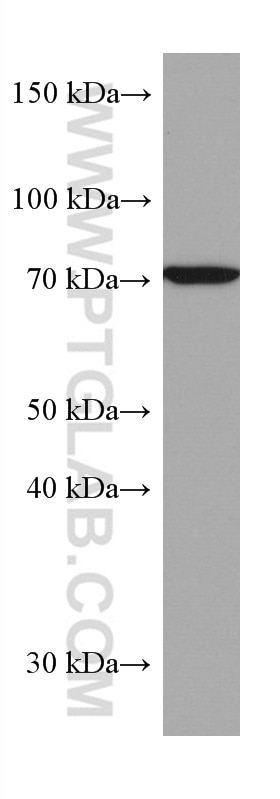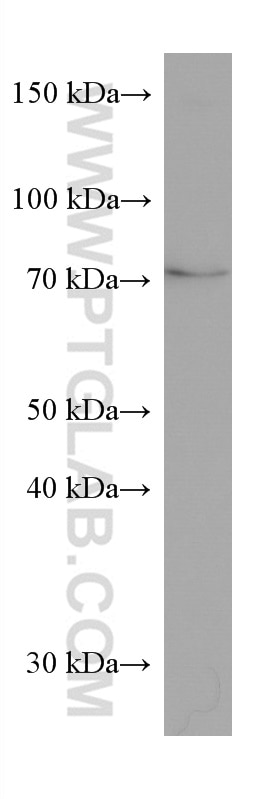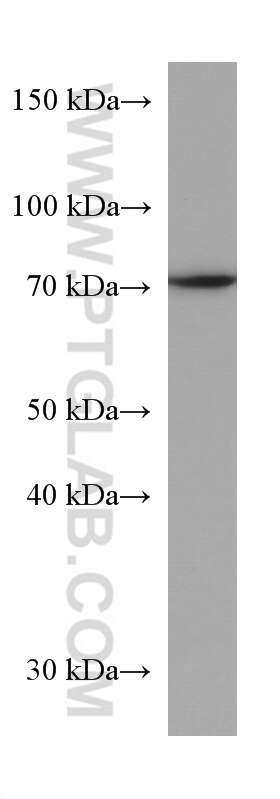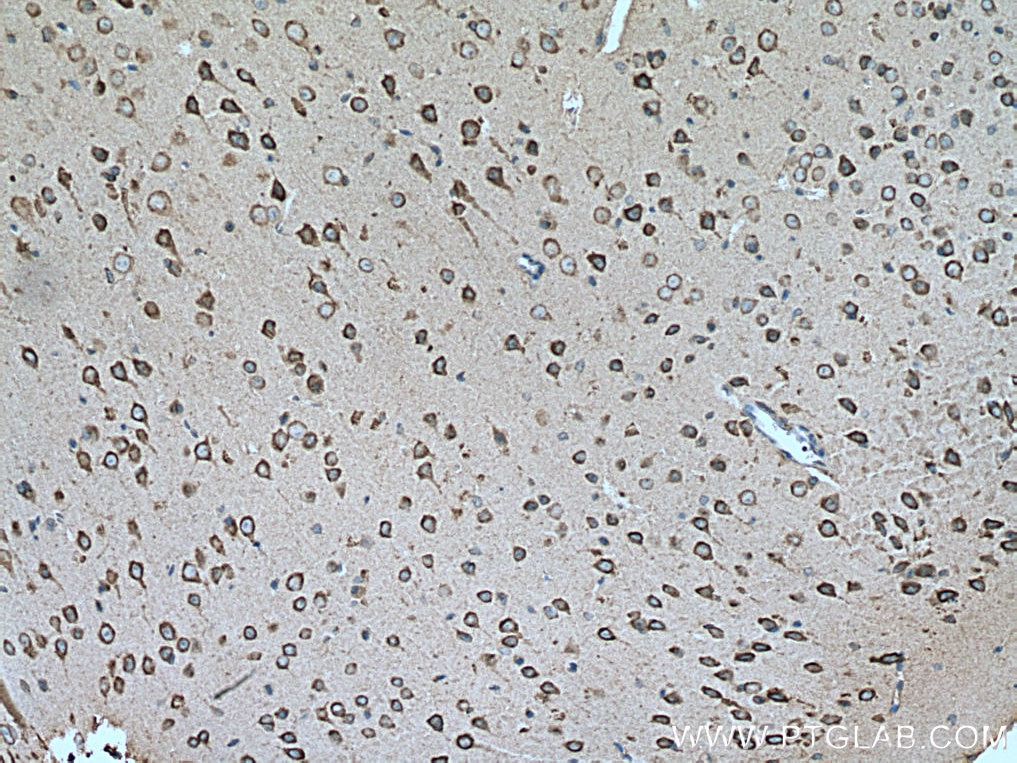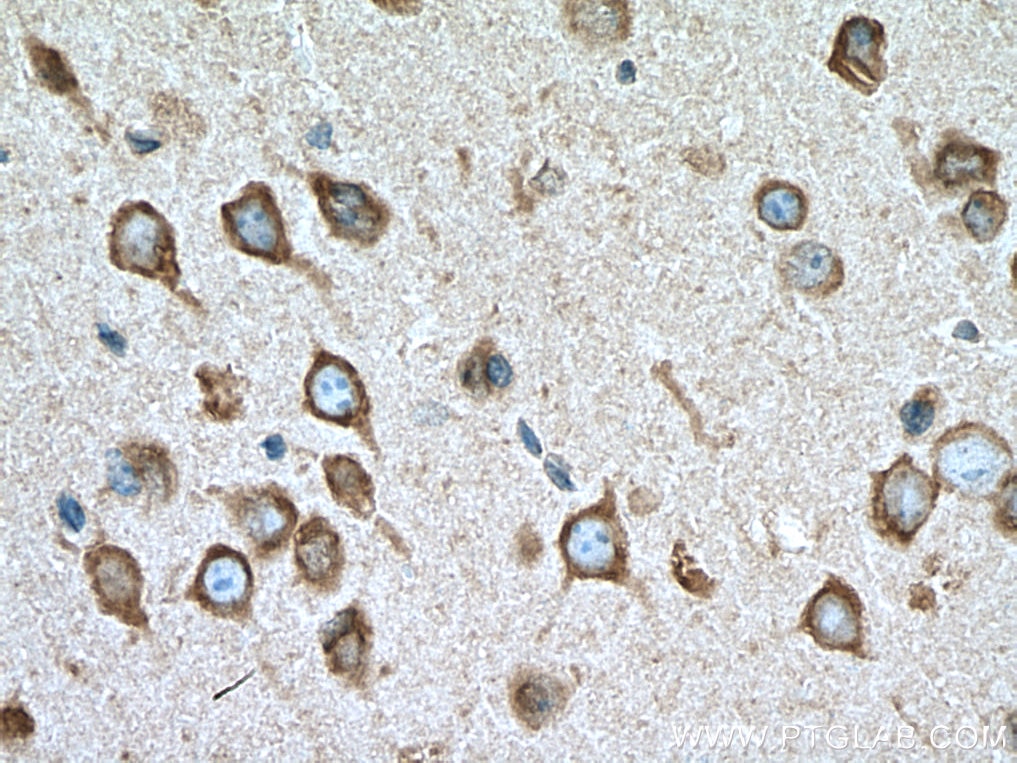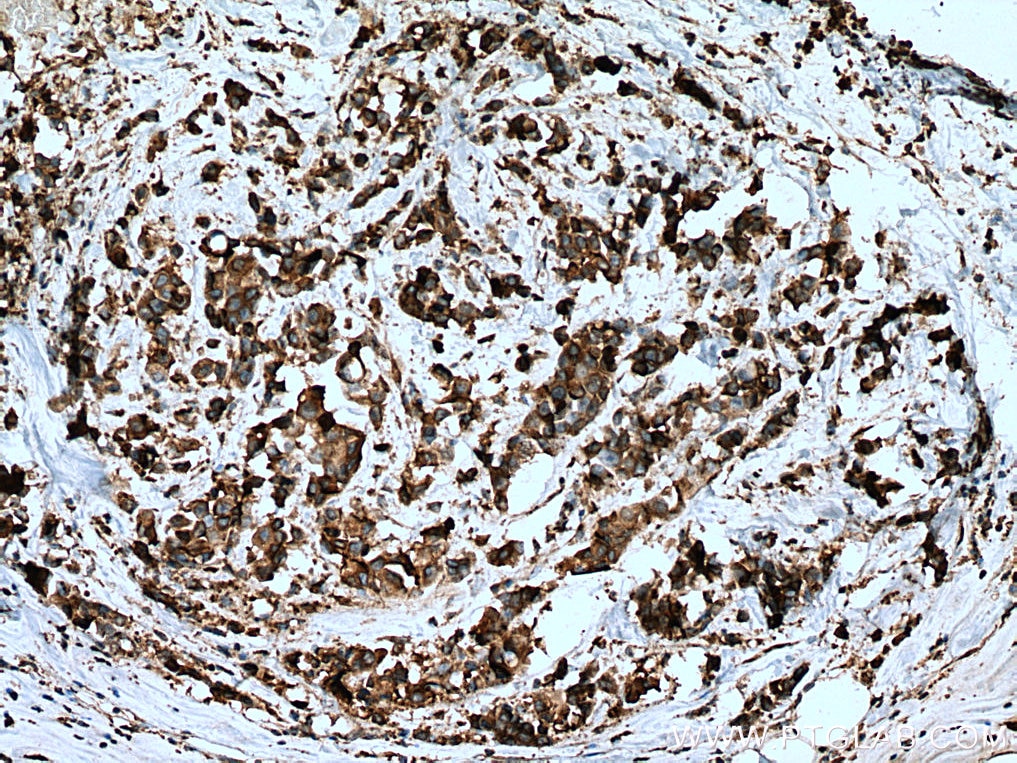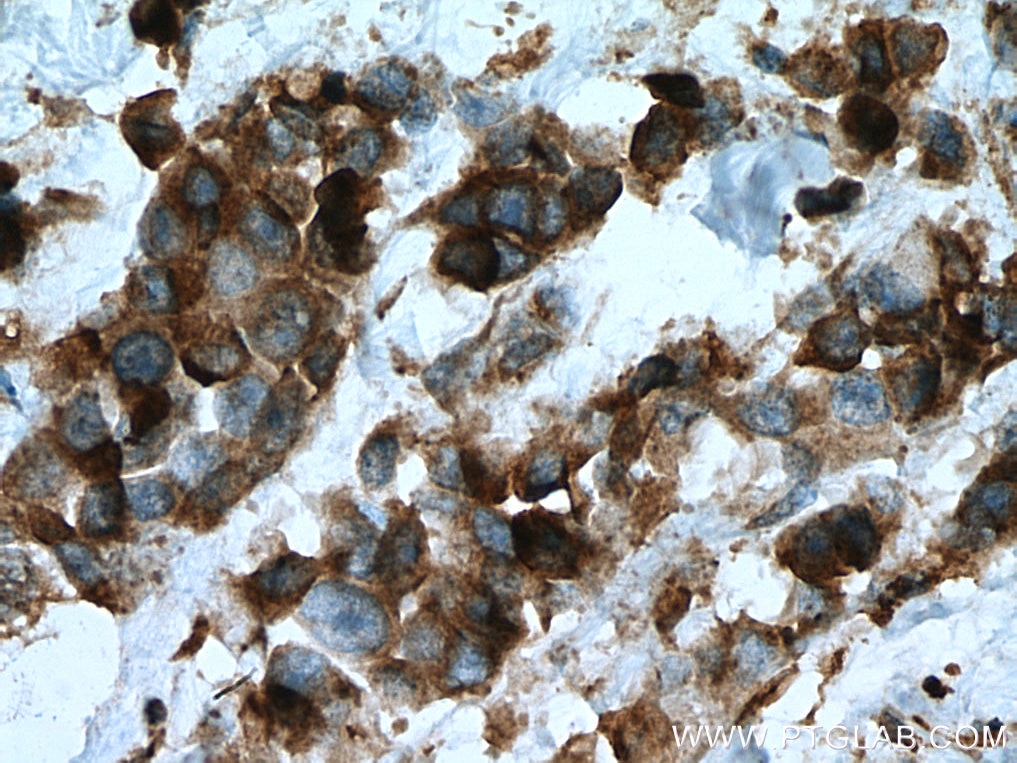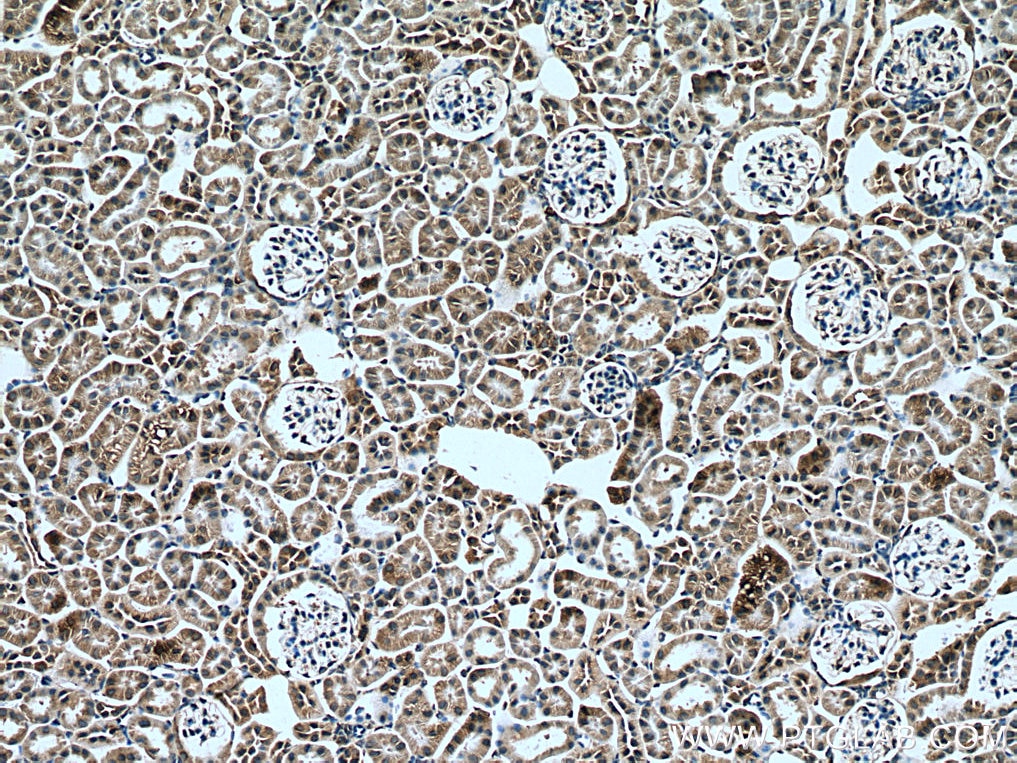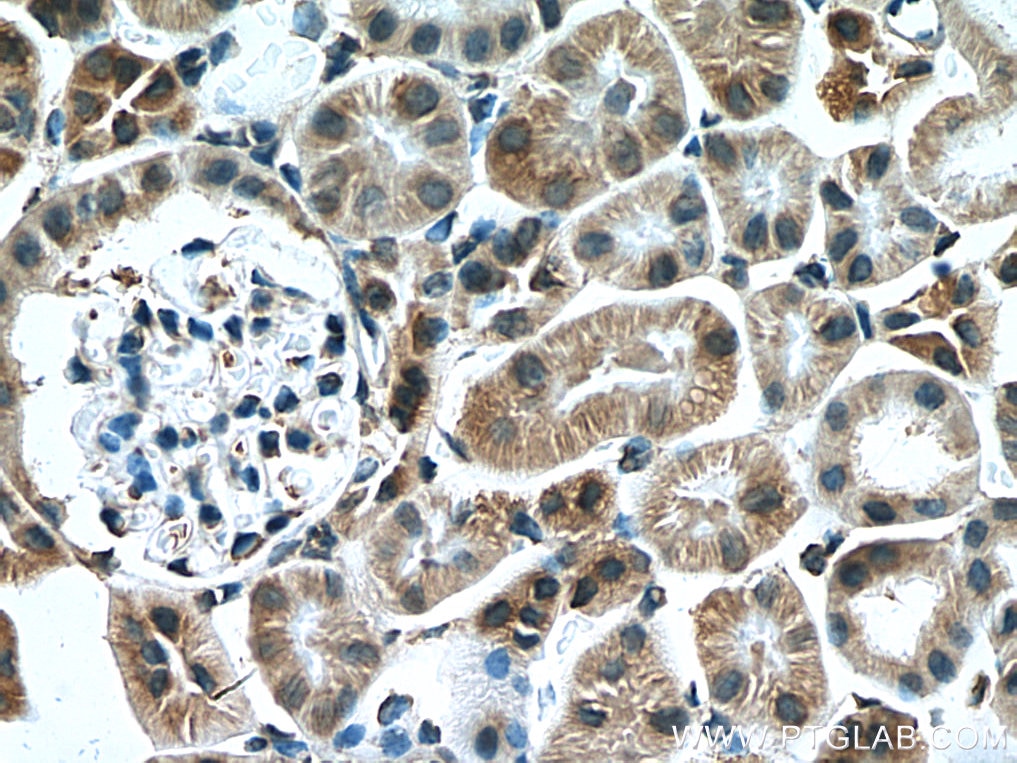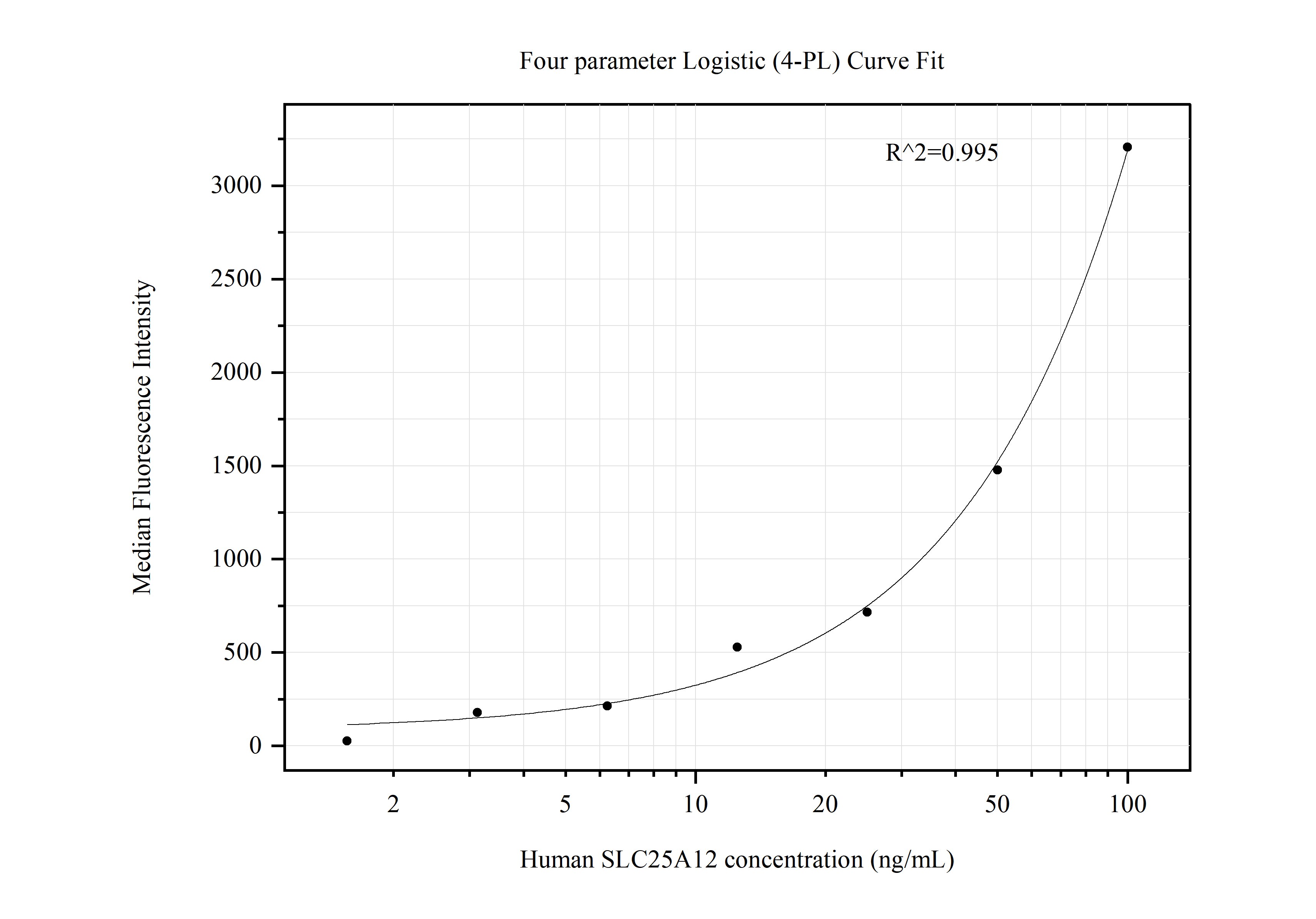Product Information
67467-1-PBS targets SLC25A12 as part of a matched antibody pair:
MP50650-2: 67467-4-PBS capture and 67467-1-PBS detection (validated in Cytometric bead array)
Unconjugated mouse monoclonal antibody pair in PBS only (BSA and azide free) storage buffer at a concentration of 1 mg/mL, ready for conjugation.
This conjugation ready format makes antibodies ideal for use in many applications including: ELISAs, multiplex assays requiring matched pairs, mass cytometry, and multiplex imaging applications.Antibody use should be optimized by the end user for each application and assay.
| Tested Reactivity | human, mouse |
| Host / Isotype | Mouse / IgG1 |
| Class | Monoclonal |
| Type | Antibody |
| Immunogen |
CatNo: Ag13576 Product name: Recombinant human SLC25A12 protein Source: e coli.-derived, PET28a Tag: 6*His Domain: 326-678 aa of BC016932 Sequence: SAYRFTLGSVAGAVGATAVYPIDLVKTRMQNQRGSGSVVGELMYKNSFDCFKKVLRYEGFFGLYRGLIPQLIGVAPEKAIKLTVNDFVRDKFTRRDGSVPLPAEVLAGGCAGGSQVIFTNPLEIVKIRLQVAGEITTGPRVSALNVLRDLGIFGLYKGAKACFLRDIPFSAIYFPVYAHCKLLLADENGHVGGLNLLAAGAMAGVPAASLVTPADVIKTRLQVAARAGQTTYSGVIDCFRKILREEGPSAFWKGTAARVFRSSPQFGVTLVTYELLQRWFYIDFGGLKPAGSEPTPKSRIADLPPANPDHIGGYRLATATFAGIENKFGLYLPKFKSPSVAVVQPKAAVAATQ Predict reactive species |
| Full Name | solute carrier family 25 (mitochondrial carrier, Aralar), member 12 |
| Calculated Molecular Weight | 75 kDa, 63 kDa |
| Observed Molecular Weight | 70-75 kDa |
| GenBank Accession Number | BC016932 |
| Gene Symbol | SLC25A12 |
| Gene ID (NCBI) | 8604 |
| RRID | AB_2882696 |
| Conjugate | Unconjugated |
| Form | Liquid |
| Purification Method | Protein G purification |
| UNIPROT ID | O75746 |
| Storage Buffer | PBS only, pH 7.3. |
| Storage Conditions | Store at -80°C. |
Background Information
SLC25A12, also known as ARALAR1, is a key component of the malate-aspartate shuttle, a metabolic system that facilitates the transfer of reducing equivalents (NADH) from the cytoplasm into mitochondria, thereby supporting oxidative phosphorylation and ATP production. SLC25A12 dysfunction results in impaired mitochondrial energy production, which can lead to neuronal damage, developmental delays, and myelination defects (PMID: 20015484).

